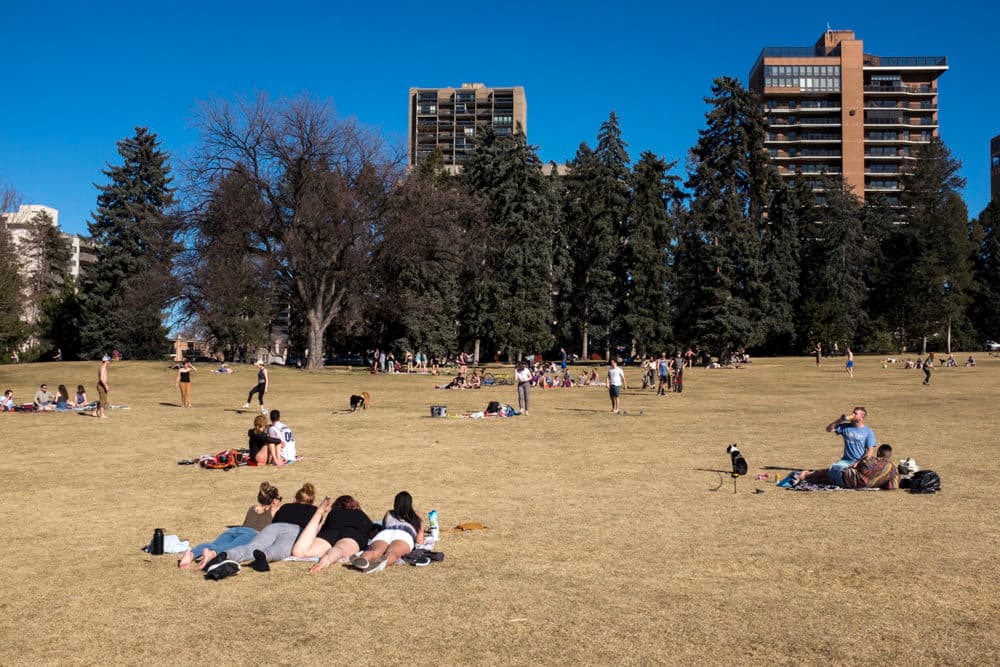
If Denver doesn't change its laws, people could be allowed to drink full-strength beer in its parks starting on Jan. 1, 2019.
However, the city has a choice: It could also ban full-strength beer drinking from the parks altogether.
Full-strength brewing:
Currently, Denver allows people to drink 3.2 beer from cans (not bottles) in open spaces of public parks.
Starting on Jan. 1, 2019, if nothing changes, local governments' rules could allow full-strength beer wherever 3.2 beer is allowed, according to state officials. The city of Denver, however, is considering a new alcohol policy that could change that.
This is happening because Colorado's new alcohol laws take effect in 2019.
You've probably heard about this change in the context of grocery stories. Right now, groceries and convenience stores are only allowed to sell the low-alcohol beer. The new law will open the door for grocery stores to sell full-strength beer.
And, unless cities change their laws, "people would be able to bring in that full-strength beer to wherever it’s allowed," said Kevin Bommer, deputy director of the Colorado Municipal League.
That leaves cities with two options: They can allow public consumption of full-strength beer wherever they want, including parks, or they can completely ban beer from public spaces.
Under the new law, "there will be no designation for 3.2% beer and no labeling requirements as of 1/1/2019. Therefore, there will be no way to differentiate 3.2% from full-strength," confirmed Meghan Tanis, a spokeswoman for the Department of Revenue. (That's 3.2% by weight, by the way.)
"My guess is municipalities are going to pull the plug if they’re not comfortable with full-strength beer," Bommer said.
(There's also the fact that major brewers may simply stop making 3.2 beer as the market for it shrinks. Only a few states will be left with 3.2 laws Colorado and Oklahoma drop theirs.)
What's Denver thinking?
The city's parks department is circulating a proposal for some other significant changes to alcohol policy, and the overall trend is looking boozier.
The big one: It would remove all of the rules' references to 3.2 beer. Instead, it would leave the decision on park beer up to the city and state.
The proposal also would loosen up several other rules about alcohol and events.
"We’re being less restrictive with the types of alcoholic beverages that are going to be served and where," said parks spokeswoman Cyndi Karvaski. The proposal is meant to get rid of inconsistencies in the current policy, she said.
"It's making it a little bit more clear," she added.
The proposal's changes include:
No more special limits. Currently, there can only be two beer/wine-serving festivals and public events at Sloan's each year. That limit would be removed. Also, full alcohol service would be allowed at permitted Sloan's Lake events.
Also, the Washington Park Boathouse would lose its special rules. Currently, you can only serve (not sell) beer or wine at the boathouse. The proposal is to allow full service and sale of alcohol in vents at the boathouse.
Overall, permitted events could serve hard liquor in most any park.
Getting boozy at the races. Currently, races and walks in parks can only serve 3.2 beer, and there can only be two alcohol-serving races in a park per year. Now, races would be allowed to serve all alcoholic beverages, with no yearly limit.
Getting boozy at your wedding. Currently, you can only serve beer, wine and champagne at "special occasions," which are private, invite-only events. The proposal would allow full service.
Drinking in the rec center.
The revised rules would clarify that alcohol service is allowed at the zoo, the botanic gardens, various clubhouses, the rooftop of the Carla Madison Rec Center. It also would allow alcohol for recreation and senior centers, but only when it's closed to the general public. No drinking in the pool or weight rooms would be allowed.
Sorry, no serving at protests or kickball.
The proposed policy would explicitly forbid booze service at demonstrations and assemblies.
The new policy also would explicitly forbid the sale or service of alcohol at athletic league practices and games.
What's next?
These changes aren't a done deal.
Parks will open a survey about the proposal on April 2. It also will make presentations to the Inter-Neighborhood Cooperation and to a city council committee.
Ultimately, though, the decision will be up to Allegra "Happy" Haynes, executive director of parks and recreation.










